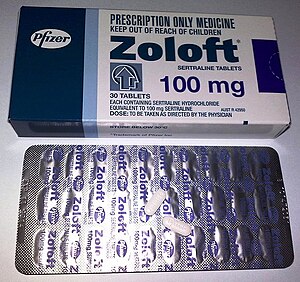| Detail of The Death of Socrates. A disciple is handing Socrates a goblet of hemlock (Photo credit: Wikipedia) |
Fiona -
I would like to introduce you to The Bergh (how cool is that for a pen name?), a fellow Kindle Scout winner and writer friend. He writes horror - the kind that submerges crazy voices in your head that a year later, when you're lying in your bed listening to the house creak, bouys thoughts of terror to the surface.
The Bergh recently wrote a short story that struck me in a new way - one that is equally frightening but in a different way. Apparently on Twitter there was a discussion about books with "The Girl" in the title - the one on the train, the one that was gone, the . . . Well, it seems popular books have to have a girl in the title. And thus a challenge was born.
The Bergh -
I’ve never penned a story or novel based off of an idea for a title before. Usually it’s the story’s idea that captures me and holds me hostage, demanding to be written; so this was a first for me. Yet as much as I thought the title was wickedly clever, I didn’t want this to be just a cheesy satire or an attempt to milk the very teet I was poking fun of. I wanted this to be a story that could stand on its own.
The only idea I started with was that the Girl would be searching for a title to something she had written. But, and I can say this in all honesty, what came out as I continued writing frightened me. It wasn’t the light-hearted story I was attempting to write. Instead, this story dove deep, sinking into a dark place that I have shared with very few people in my life. It’s not an autobiography; it’d have to be called “The Boy Who …” and, quite frankly, books with “Boy” in the title don’t sell as well as those with “Girl.”
 |
| AMAZON LINK |
(KIDDING!)
There are times when I feel creative ideas, especially exceptional ones, aren’t so much created by their auteurs, but discovered. Like finding treasure buried in sand -- you can’t claim to have created what you find, you just swept away the dirt and grime in order to reveal what was always there but just kept hidden. This story, for me, fell into that category. I don’t think I could have come up with it if I had tried to. Instead, I opened up a vein and let the story bleed onto the page, almost literally.
Depression. Suicide. These are subjects that are difficult to approach. I had no intention of including even the thought of these themes in the story, and yet it’s where the narrative demanded to go. And so, rather than the Girl searching for a title to her story, we discover she’s searching for the title to her suicide note.
Fiona -
If you are writing suicide or suicidal ideations into your plot, here is some information you might find helpful:The following information was presented at a suicide intervention talk for the Medical Reserve Corps and is incormporated with the permission of the instructor.
SUICIDE WARNING SIGNS
- Talking about wanting to die or kill oneself
- Looking for ways to kill oneself such as searching on line or buying a gun
- Talking about feeling hopeless or having no reason to live
- Talking about feeling trapped or unbearable pain
- Talking about being a burden to others
- Increased use of alcohol or drugs
- Acting anxious or agitated, unusually confused
- Reckless behavior
- Sleeping too little or too much
- Withdrawing from society
- Showing rage or seeking revenge
- Extreme mood swings
- Low or no energy, unable to perform daily tasks like taking care of self or kids
- Feeling numb or nothingness
- Fighting with family and friends
- Thinking of hurting self or someone else
- Unable to get rid of troubling thoughts or memories
NOW, be careful to only pick a few of these characteristics for your character - your character would not exhibit them all. And perhaps would exhibit them only to certain people and put up a front for others.
You'll see that many of the above signs are also part of mental health conditions. Not everyone with a mental health disorder knows they have a mental health disorder. Most go undiagnosed. Many people who are undiagnosed self medicate with alcohol and/or drugs. You'll see drugs and alcohol on the list below - but frequently it is the overt/obvious-to-others expression of an underlying mental health issue -- what others might notice. Conditions that are health factors in suicide:
- Depression (full article)
- Please note that while this is the diagnosis that most people associate with suicidal ideation, it's important to understand that Most people with depression do NOT attempt suicide BUT most people who attempt suicide are depressed.
- Depression affects (according to the CDC) 20-25% of Americans over the age of 18 in any year.
- Substance use disorder
- Bipolar disorder (full article)
- Schizophrenia and psychosis (full article)
- Personality traits of aggression, mood changes, and poor relationships
- Conduct disorder
- Anxiety disorder
- PTSD (full article)
- TBI (traumatic brain injury)
- Smoking
- Serious cronic helath issue and/or pain
Environmental Factors:
- Access to a lethal means (example guns in the house)
- Prolonged stress
- harassment
- bullying
- unemployment
- relationship problems
- Life events
- divorce
- death
- job loss
- Exposure to someone else's suicide
Historical Factors:
- Previous suicide attempts
- Family history
- Child abuse
Is your character going to be helpful?
- Acknowledge
- Take suicidal talk seriously.
- Be willing to listen
- Care
- Talk to the person about what's troubling them and how they feel. It will probably take some effort to overcome reluctance to having this conversation on the part of the helper. It's a hard thing to hear/talk about for both parties.
- Treatment
- Get professional help immediately
- Call a hot line. You can make one up but the real one to find help in your area is 1800-273-TALK
- Go to the local emergency department or community health center
- Contact their primary health provider or mental health provider
- If all else fails 911
Is your character going to do the wrong thing?
- Cheer the person up or tell them to snap out of it.
- Assume the situation will take care of itself
- Let them swear you to secrecy
- Argue or debate moral issues
- Risk their personal safety. (if they're doing it right they'd leave and call the police) - this might be a planned murder suicide in your plot, and you can get your character out and possibly save multiple lives - or not, how do you want your plot to play out?
Some stats to inform your writing from the CDC&P:
- Approximately 38k people suicide each year (suicide is the end result so differentiate attempted suicide and suicided) Compare that to the 14,196 in 2013 according to the FBI who were murdered
- 70% of people who commit suicide give some kind of warning to their friends or family.
- 50% have a positive blood alcohol level (for an alcohol level article go HERE)
- Suicide is the 2nd leading cause of death for adolescents aged 12-18
- Females are 3x more likely to attempt suicide, but males are much more likely to suicide.
- Between 20 - 40% of people who suicide have attempted suicide in the past.
Perhaps your plot line indicates that someone in your character's life has committed suicide. All characters will follow a bereavement journey in their own way. In some this might have them recall a death (especially of a beloved pet which is an immensely traumatic event that isn't recognized enough in mental health and in general) or might uncover a characters own underlying issues. But there are some commonly experienced feelings:
- Alone
- Sad
- Deveasted
- Angry
- Afraid
- Ashamed
- Guilty
- Abandoned
Struggles after a suicide that you can lace into your plot line might include:
- Disbelief that it was indeed a suicide.
- Ambivalnece - glad that they are now at peace though they wish the other character had worked out a way to be happy and alive,
- Coping - coming to terms moving on
- Review - going over the event sifting through events and conversations
- Searching - making sense of the loss
- Renewal - seeing a path to carry on. Reprioritizing and reviewing values
About three or four years ago I was diagnosed with MDD (Major Depressive Disorder). I won’t go into the details of what triggered my disease, but it has been – and continues to be – the most difficult thing I’ve ever experienced.
If you’re one of those who have never experienced depression or suicidal thoughts, count your blessings, but know that someone within your sphere of influence is most likely suffering right now. We can all do better at reaching out to those who are down, lifting instead of kicking.
And to those of you who find every day is a battle, know that you’re not alone. There is help. Seek a professional – believe me, it can be life changing. As difficult as it can be, reach out to a friend, a prevention hotline, ANYONE who can help you in those moments when the darkness seems to surround you from all sides. And know that without the darkness, we’d never appreciate the light.”
Fiona -
Suicidal ideation (thinking about) is not uncommon. If you read this article, and it has triggered you please talk with someone. A number to call is:
1-800-273-TALK
1-888-628-9454 (Spanish)
Crisischat.org
A big thank you to The Behrgh for sharing.
As always, a big thank you ThrillWriters and readers for stopping by. Thank you, too, for your support. When you buy my books, you make it possible for me to continue to bring you
helpful articles and keep ThrillWriting free and accessible to all.

A big thank you to The Behrgh for sharing.
As always, a big thank you ThrillWriters and readers for stopping by. Thank you, too, for your support. When you buy my books, you make it possible for me to continue to bring you
helpful articles and keep ThrillWriting free and accessible to all.











